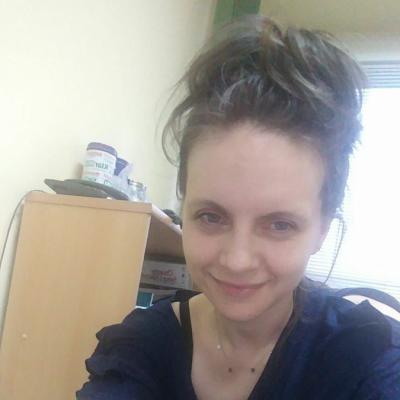Comprehensive Neurology Services London
Do you suffer from frequent headaches, dizziness, limb numbness or memory problems? These symptoms may indicate problems with your nervous system. At our Polish practice in London and Coventry, we offer specialist neurological consultations in English – without communication barriers and with access to modern diagnostics.
Polish neurologist in the UK means safety, understanding and a comprehensive approach to your problems – regardless of your age or medical history.
Appointment booking hours:
Monday - Friday 7:30am - 8pm
Saturday - 8am - 5pm
Sunday - 10am- 5pm
Our locations:
Polish Medical and Dental Clinic - Poland Medical London
377 High Road
Harrow
HA3 6EL
Tel.: 0208 903 4874
Tel./Fax: 0208 903 3455
Mobile: 077 466 231 02
Polish Medical and Dental Clinic - Poland Medical Coventry
30 Park Road
Coventry
CV1 2LD
Tel.: 024 7767 1780
Mobile: 077 126 585 38
Scope of neurological services
A neurologist recognises and treats disorders of the central and peripheral nervous system. We offer:
- neurological consultations for adults,
- assessment and treatment of headaches, migraines, tension headaches and cluster headaches,
- diagnosis of dizziness and balance disorders,
- treatment of numbness and tingling in the limbs,
- diagnosis and control of epilepsy, fainting, neurological seizures,
- treatment of neuralgia,
- diagnosis of memory, concentration and cognitive disorders (including Alzheimer's disease),
- consultations after strokes,
- qualification for imaging tests (MRI, CT), EEG and nerve conduction tests (EMG).
When should you see a neurologist?
Some neurological symptoms may seem harmless, but ignoring them can lead to serious consequences. See a neurologist if:
- you have frequent headaches or migraines,
- you experience dizziness or balance problems,
- you experience numbness, tingling or weakness in your limbs,
- you have problems with memory or concentration,
- you experience sudden speech, vision or consciousness disorders,
- you have nervous tics, hand tremors or muscle spasms,
- you have epileptic seizures or fainting spells,
- you suspect multiple sclerosis (MS), neuropathy, Parkinson's disease or Alzheimer's disease.
Modern neurological diagnostics
At our clinic, we provide access to tests that support accurate diagnosis, including:
- EEG (electroencephalography) – for epilepsy, loss of consciousness, headaches,
- EMG/ENG – nerve conduction study (e.g. for numbness in the hands, carpal tunnel syndrome),
- Qualification for imaging tests – magnetic resonance imaging (MRI), computed tomography (CT),
- Laboratory tests – helpful in the diagnosis of neurological diseases (e.g. MS, neuritis).
All tests are discussed in detail with the patient – in English, with a full explanation of the results and further treatment.
Polish neurologist in London – why is it worth it?
Neurological problems can have many causes and require special attention and thorough diagnosis. At our clinic, we provide:
- consultations in English – without stress or misunderstandings,
- a specialist with experience working in the UK and Poland,
- an individual approach to each patient,
- quick access to tests and any follow-up consultations,
- care also for chronic and neurodegenerative conditions.
Neurology Services London - Frequently Asked Questions
What does a neurologist do?
A neurologist is a doctor who deals with diseases of the central and peripheral nervous systems. His interests include the brain and spinal cord as well as the connections between them and other organs and muscles. Neurologist assesses the activity of the nervous system by examining body's reactions to stimuli and taking into account the additional test results.
Neurologist deals with diseases which are damaging the nervous system. These include infections of the nervous system, neurocutaneous or cerebrospinal fluid disorders. They are also injuries of the nervous system, dementia syndromes, movement disorders, neuropathies and tumours. They may have a genetic background, appear in a childhood as congenital diseases, or injuries in an adulthood.
Scope of treatment
• degenerative disease of the spine
• sciatica
• migraine
• peripheral neuropathies
• epilepsy
• intracerebral haemorrhage
• meningitis
• ischemic stroke (cerebral infarction)
• transient ischemic attack
• brain tumours
• injuries of the nervous system
• neurocutaneous disorders
• Alzheimer's disease
• Parkinson's disease
• Huntington's disease
• Wilson's disease
• myasthenia gravis
• myopathy
• hydrocephalus
Many neurological diseases can be detected easily and treated quickly. It is important to go to a doctor as soon as possible, who, based on the symptoms and results of simple tests, will make a diagnosis and start the treatment.
With what symptoms you should see a neurologist
• headaches and face pains (especially if they last a long time and their cause has not been identified, or if your current treatment has not worked)
• sleep disturbances (difficulty falling asleep, broken sleep) not caused by stress, time zone changes or pain
• persistent headache, neck pain, limb pain, when the cause has not been identified or if the current treatment has not been effective
• various types of involuntary movements and nervous tics
• muscle weakness, stiffness and increased tension, muscle twitching and cramps with no apparent cause, paresis
• dizziness, imbalance, uncoordinated movements or feeling unstable
• problems with memory, lack of orientation in a known area, loss of the ability to perform current tasks, and problems with concentration
• feeling of numbness or tingling not caused by pressure
• impaired eyesight, smell, taste, sensation, speech or hearing, occurring suddenly or from time to time
• disorders with urination and stools
Consultation
After an interview with the patient, neurologist starts the examination with a visual inspection. They check the patient's type of build, bone and muscle condition, and posture. Then they examine the mobility, shape, dimensions and condition of the cranial nerves. Neurological examination also includes checking the upper and lower limbs, and the torso in terms of their mobility, sensation and reflexes. The tests used by neurologist also include examination of the fundus, meningeal symptoms, as well as the assessment of speech, memory, orientation and gait.
Examination of each patient can be slightly different, depending on the reported symptoms and general condition. When the physical examination does not give a clear diagnosis, neurologist may order additional laboratory, imaging and electrophysiological tests.
Additional tests include:
- electroencephalography (EEG)
- electromyography (EMG)
- computed tomography
- magnetic resonance imaging (MRI)
- angiography
- Doppler ultrasound of the arteries
- positron emission tomography (PET)
- lumbar puncture
- X-ray of the skull and spine
- test of evoked potentials
- biochemistry
- genetic tests
Based on the test results, neurologist will be able to determine the cause of the symptoms and will recommend appropriate outpatient or hospital treatment. Part of the treatment is neurological rehabilitation, especially after stroke, cranial trauma or in certain diseases (Parkinson's disease, multiple sclerosis).
Neurological disorders must not be underestimated, and if detected early, they can be effectively treated.


